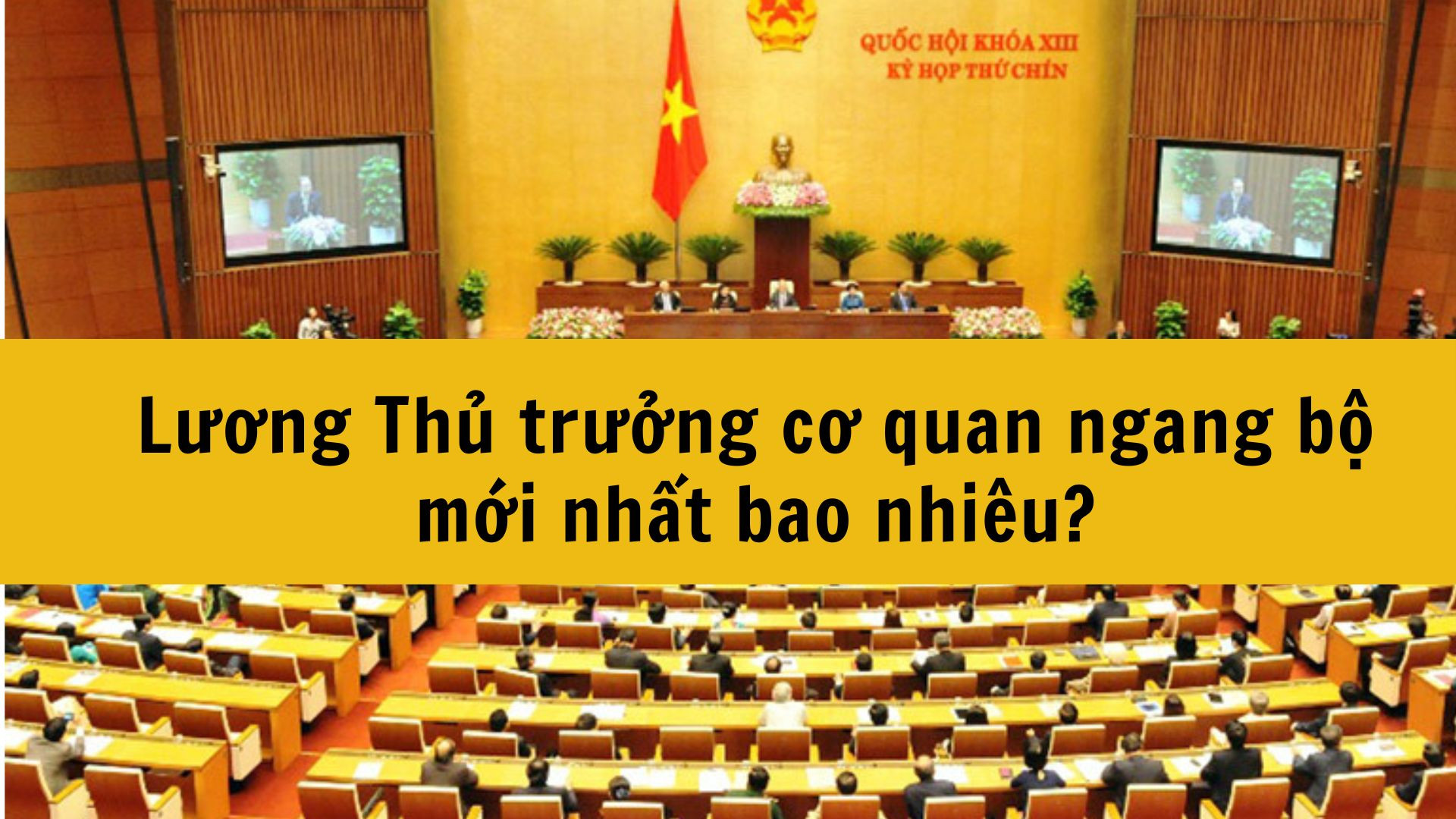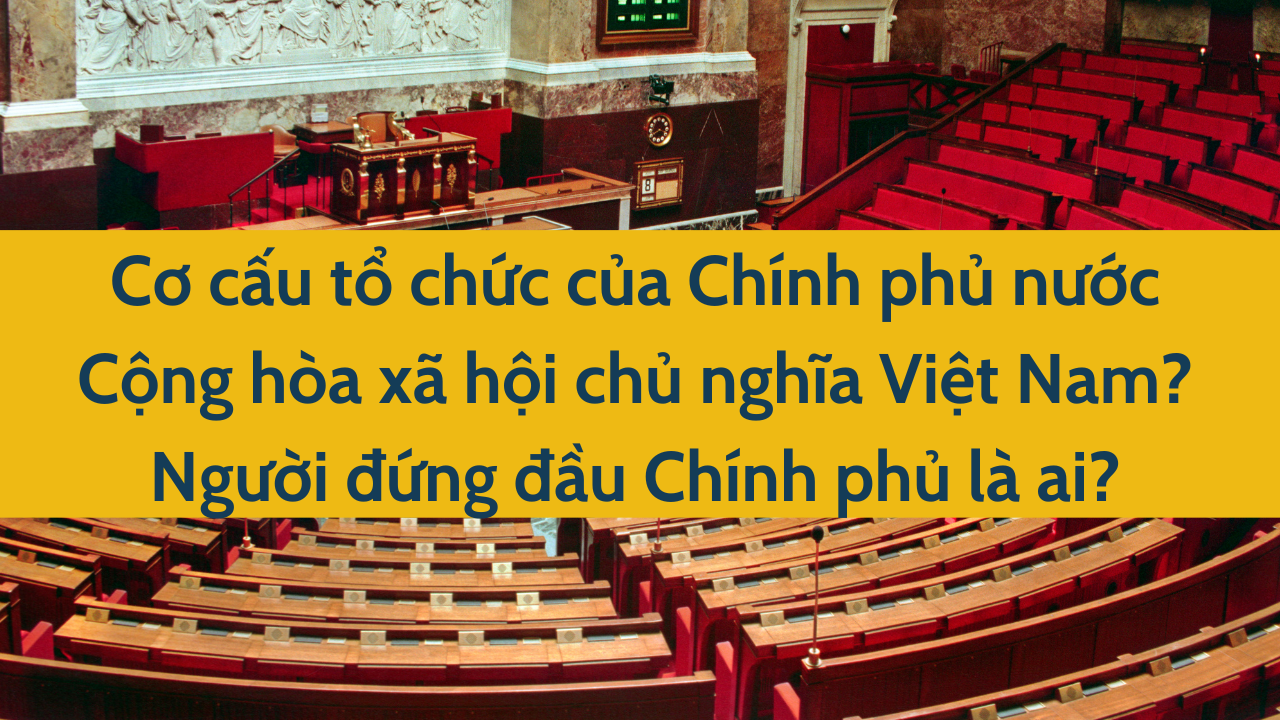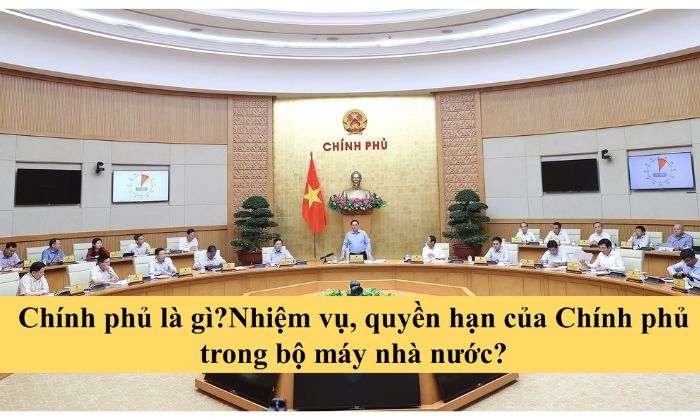 Tìm kiếm
Tìm kiếm
Chương III Luật Tổ chức Chính phủ 2015: Nhiệm vụ và quyền hạn của thủ tướng chính phủ
| Số hiệu: | 76/2015/QH13 | Loại văn bản: | Luật |
| Nơi ban hành: | Quốc hội | Người ký: | Nguyễn Sinh Hùng |
| Ngày ban hành: | 19/06/2015 | Ngày hiệu lực: | 01/01/2016 |
| Ngày công báo: | 27/07/2015 | Số công báo: | Từ số 865 đến số 866 |
| Lĩnh vực: | Bộ máy hành chính | Tình trạng: | Còn hiệu lực |
TÓM TẮT VĂN BẢN
Văn bản tiếng việt
Văn bản tiếng anh
1. Lãnh đạo công tác của Chính phủ; lãnh đạo việc xây dựng chính sách và tổ chức thi hành pháp luật; phòng, chống quan liêu, tham nhũng, lãng phí:
a) Lãnh đạo, chỉ đạo việc xây dựng các dự án luật, pháp lệnh, dự thảo nghị quyết trình Quốc hội, Ủy ban thường vụ Quốc hội;
b) Lãnh đạo, chỉ đạo xây dựng các văn bản pháp luật và các chiến lược, quy hoạch, kế hoạch, chính sách và các dự án khác thuộc thẩm quyền quyết định của Chính phủ, Thủ tướng Chính phủ;
c) Chỉ đạo, điều hòa, phối hợp hoạt động giữa các thành viên Chính phủ; quyết định các vấn đề khi còn có ý kiến khác nhau giữa các Bộ trưởng, Thủ trưởng cơ quan ngang bộ;
d) Lãnh đạo việc thực hiện công tác phòng, chống quan liêu, tham nhũng, lãng phí trong hoạt động của bộ máy nhà nước và các hoạt động kinh tế - xã hội;
đ) Lãnh đạo, chỉ đạo Chủ tịch Ủy ban nhân dân cấp tỉnh thực hiện các quy định của pháp luật và các chương trình, kế hoạch, chiến lược của Chính phủ trên các lĩnh vực quản lý kinh tế, văn hóa, xã hội và quốc phòng, an ninh;
e) Lãnh đạo, chỉ đạo, kiểm tra và xử lý các vi phạm trong quá trình triển khai thực hiện Hiến pháp và pháp luật trong phạm vi toàn quốc.
2. Lãnh đạo và chịu trách nhiệm về hoạt động của hệ thống hành chính nhà nước từ trung ương đến địa phương, bảo đảm tính thống nhất, thông suốt, liên tục của nền hành chính quốc gia:
a) Quản lý và điều hành hoạt động của hệ thống hành chính nhà nước từ trung ương đến địa phương trong quá trình phục vụ Nhân dân, thực hiện các nhiệm vụ phát triển kinh tế, văn hóa, xã hội và tăng cường quốc phòng, an ninh;
b) Chỉ đạo và thống nhất quản lý cán bộ, công chức, viên chức trong hệ thống hành chính nhà nước từ trung ương đến địa phương;
c) Lãnh đạo, chỉ đạo, tổ chức thanh tra, kiểm tra các hoạt động thực thi công vụ của cán bộ, công chức trong hệ thống hành chính nhà nước;
d) Lãnh đạo, chỉ đạo việc kiểm tra, thanh tra công tác quản lý cán bộ, công chức, viên chức trong hệ thống hành chính nhà nước từ trung ương đến địa phương;
đ) Quyết định việc phân cấp quản lý công chức, viên chức trong các cơ quan hành chính của bộ máy nhà nước;
e) Lãnh đạo, chỉ đạo việc quản lý, điều hành toàn bộ cơ sở vật chất, tài chính và nguồn ngân sách nhà nước để phục vụ cho sự vận hành của bộ máy nhà nước;
g) Ủy quyền cho Phó Thủ tướng Chính phủ hoặc Bộ trưởng, Thủ trưởng cơ quan ngang bộ thực hiện một hoặc một số nhiệm vụ trong phạm vi thẩm quyền của Thủ tướng Chính phủ;
h) Lãnh đạo, chỉ đạo công tác cải cách hành chính và cải cách chế độ công vụ, công chức trong hệ thống hành chính nhà nước từ trung ương đến địa phương;
i) Lãnh đạo, chỉ đạo, kiểm tra hoạt động của các Bộ trưởng, Thủ trưởng cơ quan ngang bộ, chính quyền địa phương và người đứng đầu cơ quan, đơn vị trong hệ thống hành chính nhà nước từ trung ương đến địa phương.
3. Trình Quốc hội phê chuẩn đề nghị bổ nhiệm, miễn nhiệm, cách chức Phó Thủ tướng Chính phủ, Bộ trưởng và thành viên khác của Chính phủ; trong thời gian Quốc hội không họp, trình Chủ tịch nước quyết định tạm đình chỉ công tác của Phó Thủ tướng Chính phủ, Bộ trưởng và thành viên khác của Chính phủ.
4. Trình Ủy ban thường vụ Quốc hội phê chuẩn việc bổ nhiệm, miễn nhiệm đại sứ đặc mệnh toàn quyền của Cộng hòa xã hội chủ nghĩa Việt Nam.
5. Trong thời gian Quốc hội không họp, quyết định giao quyền Bộ trưởng, Thủ trưởng cơ quan ngang bộ theo đề nghị của Bộ trưởng Bộ Nội vụ trong trường hợp khuyết Bộ trưởng hoặc Thủ trưởng cơ quan ngang bộ. Trong thời gian giữa hai kỳ họp Hội đồng nhân dân cấp tỉnh, quyết định giao quyền Chủ tịch Ủy ban nhân dân cấp tỉnh theo đề nghị của Bộ trưởng Bộ Nội vụ trong trường hợp khuyết Chủ tịch Ủy ban nhân dân cấp tỉnh.
6. Quyết định bổ nhiệm, miễn nhiệm, cách chức, cho từ chức Thứ trưởng, chức vụ tương đương thuộc bộ, cơ quan ngang bộ; quyết định bổ nhiệm, miễn nhiệm, cách chức người đứng đầu, cấp phó của người đứng đầu cơ quan thuộc Chính phủ.
7. Phê chuẩn việc bầu, miễn nhiệm và quyết định điều động, đình chỉ công tác, cách chức Chủ tịch, Phó Chủ tịch Ủy ban nhân dân cấp tỉnh. Yêu cầu Chủ tịch Ủy ban nhân dân cấp tỉnh đình chỉ công tác, cách chức Chủ tịch, Phó Chủ tịch Ủy ban nhân dân cấp dưới khi không hoàn thành nhiệm vụ được cấp có thẩm quyền giao hoặc vi phạm pháp luật.
8. Đình chỉ việc thi hành hoặc bãi bỏ văn bản của Bộ trưởng, Thủ trưởng cơ quan ngang bộ, Ủy ban nhân dân, Chủ tịch Ủy ban nhân dân cấp tỉnh trái với Hiến pháp, luật và văn bản của cơ quan nhà nước cấp trên; đình chỉ việc thi hành nghị quyết của Hội đồng nhân dân cấp tỉnh, trái với Hiến pháp, luật và văn bản của cơ quan nhà nước cấp trên, đồng thời đề nghị Ủy ban thường vụ Quốc hội bãi bỏ.
9. Quyết định và chỉ đạo việc đàm phán, chỉ đạo việc ký, gia nhập điều ước quốc tế thuộc nhiệm vụ, quyền hạn của Chính phủ; tổ chức thực hiện điều ước quốc tế mà Cộng hòa xã hội chủ nghĩa Việt Nam là thành viên.
10. Quyết định các tiêu chí, điều kiện thành lập hoặc giải thể các cơ quan chuyên môn đặc thù, chuyên ngành thuộc Ủy ban nhân dân cấp tỉnh, cấp huyện. Quyết định thành lập các cơ quan, tổ chức khác thuộc Ủy ban nhân dân cấp tỉnh; quyết định thành lập hội đồng, Ủy ban hoặc ban khi cần thiết để giúp Thủ tướng Chính phủ nghiên cứu, chỉ đạo, phối hợp giải quyết những vấn đề quan trọng liên ngành.
11. Triệu tập và chủ trì các phiên họp của Chính phủ.
1. Chịu trách nhiệm trước Quốc hội về hoạt động của Chính phủ và hệ thống hành chính nhà nước từ trung ương đến địa phương; về các quyết định và kết quả thực hiện các quyết định của mình trong phạm vi nhiệm vụ, quyền hạn được giao.
2. Thực hiện báo cáo công tác của Chính phủ, Thủ tướng Chính phủ; giải trình, trả lời chất vấn trước Quốc hội, Ủy ban thường vụ Quốc hội, trường hợp vắng mặt thì ủy quyền cho Phó Thủ tướng Chính phủ thực hiện.
3. Thực hiện chế độ báo cáo trước Nhân dân thông qua các phương tiện thông tin đại chúng về những vấn đề quan trọng thuộc thẩm quyền giải quyết của Chính phủ và Thủ tướng Chính phủ.
1. Thủ tướng Chính phủ ban hành văn bản pháp luật theo thẩm quyền để thực hiện nhiệm vụ, quyền hạn của mình, kiểm tra việc thi hành các văn bản đó và xử lý các văn bản trái Hiến pháp và pháp luật.
2. Thủ tướng Chính phủ thay mặt Chính phủ ký các văn bản của Chính phủ; ban hành quyết định, chỉ thị và hướng dẫn, kiểm tra việc thi hành các văn bản đó trong hệ thống các cơ quan hành chính nhà nước từ trung ương đến địa phương.
1. Phó Thủ tướng Chính phủ giúp Thủ tướng Chính phủ làm nhiệm vụ theo sự phân công của Thủ tướng Chính phủ và chịu trách nhiệm trước Thủ tướng Chính phủ về nhiệm vụ được phân công.
2. Khi Thủ tướng Chính phủ vắng mặt, một Phó Thủ tướng Chính phủ được Thủ tướng Chính phủ ủy nhiệm thay mặt Thủ tướng Chính phủ lãnh đạo công tác của Chính phủ.
DUTIES AND POWERS OF THE PRIME MINISTER
Article 28. Duties and powers of the Prime Minister
1. Lead the tasks of the Government; lead the formulation of policies and organize the implementation of laws; prevent and combat bureaucracy, corruption and extravagance as follows:
a) Lead and direct formulation of law projects, ordinances and draft resolutions for submission to the National Assembly and the National Assembly Standing Committee;
b) Lead and direct formulation of legislative documents, strategies, proposals, plans, policies and other projects under the decision-making authority of the Government and the Prime Minister;
c) Direct, regulate and collaborate in operations of the cabinet members; make a decision on dealing with discrepancies between Ministers and Heads of Ministry-level agencies;
d) Lead the performance of duties to prevent and combat bureaucracy, corruption and extravagance in operations of the state machinery and socioeconomic activities;
dd) Guide and direct the President of the provincial People’s Committee to implement legal regulations and programs, plans and strategies of the Government in terms of economic management, culture, society and national defence and security;
e) Lead, direct inspection and settlement of violations in the course of implementation of the Constitution and legislation across the country.
2. Lead and take responsibility for operations of the state administrative system at the central level through the local one, and ensure the consistency, transparency and continuity of the national administrative foundation as follows:
a) Manage and direct operations of the state administrative system at the central level through the local one during the process of serving the people, and implement duties to develop economy, culture, society as well as improve national defence and security;
b) Direct and ensure the consistency in management of officials, civil servants and public employees in the state administrative system at the central level through the local one;
c) Lead, direct and organize the inspection and examination of rendering of civil services carried out by officials and civil servants in the state administrative system;
d) Lead and direct inspection and examination of management of officials, civil servants and public employees in the state administrative system at the central level through the local one;
dd) Decide the decentralization to disperse powers to manage civil servants and public employees in state administrative organs that belong to the government machinery;
e) Lead and direct management and administration of all facilities, finances and state budget resources used for supporting operations of the state machinery;
g) Authorize Deputies of the Prime Minister and Ministers or Heads of Ministry-level agencies to implement one or several duties under the authority of the Minister;
h) Lead and direct the work of administrative and civil service reform in the state administrative system at the central level through the local one;
i) Lead, direct and check activities of Ministers, Heads of Ministry-level agencies, local governments and heads of organs or agencies in the state administrative system at the central level through the local one.
3. Request the National Assembly to ratify the proposal to appoint, discharge and dismiss the Deputies of the Prime Minister, Ministers and other cabinet members; during the National Assembly's meeting, request the President of Vietnam to decide the temporary suspension of the capacity of the Prime Minister's Deputies, Ministers and other cabinet members.
4. Request the National Assembly Standing Committee to ratify the appointment and discharge of Ambassadors Extraordinary and Plenipotentiary of the Socialist Republic of Vietnam
5. In between the National Assembly’s meetings, decide to choose acting Ministers or Heads of Ministry-level agencies upon the request of the Minister of Home Affairs in case there is any vacancy for a Minister or Head of a Ministry-level agency. In between the provincial People’s Council’s meetings, decide to choose acting Presidents of the provincial People’s Committee upon the request of the Minister of Home Affairs in case there is any vacancy for a President of the provincial People’s Committee.
6. Decide the appointment, discharge, dismissal and resignation of Deputy Ministers, equivalent positions of Ministries and Ministry-level agencies; decide the appointment, discharge and resignation of heads and vice heads of Government agencies.
7. Ratify the election, discharge and dispatch, work suspension and dismissal of the President and Vice President of the provincial People’s Committee. Request the President of the provincial People’s Committee to suspend and discharge the President and Vice President of the People's Committee at the inferior level if they fail to perform duties delegated by competent authorities or they commit law violations.
8. Suspend the enforcement or abolishment of documents issued by Ministers, Heads of Ministry-level agencies, the People's Committees and Presidents of the provincial People’s Committees which are in breach of the Constitution, legislation and documents of state organs at the superior level; suspend the implementation of resolutions of the provincial People's Council in breach of the Constitution, legislation and documents issued by state organs at the superior level, and concurrently request the National Assembly Standing Committee to abolish them.
9. Decide and direct the negotiation, and direct conclusion of and accession to International Agreements under the authority of the Government; organize the implementation of the international agreements to which the Socialist Republic of Vietnam is a signatory.
10. Decide criteria and conditions for establishment or dissolution of particular and specialized professional affiliates of the People's Committee at the provincial and district level. Decide establishment of other agencies or organizations affiliated to the provincial People’s Committee; decide establishment of the councils, committees or others when necessary in order to assist the Prime Minister to examine, direct and collaborate in dealing with important interdisciplinary issues.
11. Convene and preside at the Government’s meetings.
Article 29. Responsibilities of the Prime Minister
1. Take his responsibility to the National Assembly for the Government’s performance and state administrative system at the central level through the local one; for decisions and the result of implementation of his decisions within his/her delegated duties and powers.
2. Take on the performance reporting obligations of the Government and the Prime Minister; give explanations and answer questions in front of the National Assembly and National Assembly Standing Committee. If (s)he is absent, the Prime Minister’s Deputies shall be authorized to perform these tasks.
3. Implement regulations on report to the People through means of mass media in terms of important issues under the decision-making authority of the Government and the Prime Minister.
Article 30. Authority to issue documents
1. The Prime Minister shall promulgate legislative documents within his/her jurisdiction so as to perform his/her duties and powers, and inspect the implementation of such documents and deal with documents in breach of the Constitution and legislation.
2. The Prime Minister shall act on behalf of the Government to sign the Government’s documents; issue decisions, directives and instructions, and examine the implementation of such documents in state administrative organs at the central level through the local one.
Article 31. Deputy Prime Minister
1. The Deputy Prime Minister shall assist the Prime Minister in performing duties as assigned by the Prime Minister, and shall be responsible to the Prime Minister for performance of these assigned duties.
2. When the Prime Minister is absent, one Deputy Prime Minister shall be authorized by the Prime Minister to act on behalf of the Prime Minister to lead the Government’s tasks.
Văn bản liên quan
Cập nhật
Bài viết liên quan
Lương Thủ trưởng cơ quan ngang bộ mới nhất 2025 bao nhiêu?

Lương Thủ trưởng cơ quan ngang bộ mới nhất 2025 bao nhiêu?
Năm 2025, lương của Thủ trưởng cơ quan ngang bộ đã có những thay đổi đáng chú ý nhằm đáp ứng yêu cầu công việc và đảm bảo chế độ đãi ngộ phù hợp với vai trò quan trọng trong việc điều hành và quản lý các lĩnh vực chuyên môn. Bài viết dưới đây sẽ cung cấp thông tin chi tiết về mức lương của Thủ trưởng cơ quan ngang bộ mới nhất trong năm 2025. 22/01/2025Thủ tướng Chính phủ Nước Cộng hòa xã hội chủ nghĩa Việt Nam do ai bầu ra?

Thủ tướng Chính phủ Nước Cộng hòa xã hội chủ nghĩa Việt Nam do ai bầu ra?
Trong bài viết này, chúng ta sẽ cùng khám phá một câu hỏi quan trọng về hệ thống chính trị Việt Nam. "Thủ tướng Chính phủ Nước Cộng hòa xã hội chủ nghĩa Việt Nam do ai bầu ra?" Qua đó, bài viết sẽ cung cấp cái nhìn tổng quan về quy trình bầu cử Thủ tướng, vai trò của Quốc hội trong việc xác nhận các chức danh lãnh đạo, cũng như ý nghĩa của cơ chế này đối với sự phát triển và ổn định của đất nước. 10/11/2024Thủ tướng Chính Phủ có thẩm quyền ban hành loại văn bản quy phạm pháp luật nào?

Thủ tướng Chính Phủ có thẩm quyền ban hành loại văn bản quy phạm pháp luật nào?
Theo quy định pháp luật, Thủ tướng Chính phú là người đứng đầu Chính phủ và hệ thống hành chính Nhà Nước. Từ đó, có thể thấy, Thủ tướng Chính phủ đóng một vai trò vô cùng quan trọng trong hoạt động quản lý hành chính Nhà Nước, đặc biệt là trong lĩnh vực ban hành văn bản quy phạm pháp luật. Vậy, Thủ tướng Chính phủ sẽ có thẩm quyền ban hành loại văn bản quy phạm pháp luật nào? Hãy cùng theo dõi bài viết sau để tìm được câu trả lời chính xác nhất. 10/11/2024Cơ cấu tổ chức của Chính phủ nước Cộng hòa xã hội chủ nghĩa Việt Nam? Người đứng đầu Chính phủ là ai?

Cơ cấu tổ chức của Chính phủ nước Cộng hòa xã hội chủ nghĩa Việt Nam? Người đứng đầu Chính phủ là ai?
Chính phủ nước Cộng hòa xã hội chủ nghĩa Việt Nam đóng vai trò then chốt trong việc quản lý và điều hành các hoạt động của nhà nước, đảm bảo thực hiện các chính sách phát triển kinh tế, xã hội và bảo vệ an ninh quốc phòng. Cơ cấu tổ chức của Chính phủ được xây dựng nhằm đáp ứng hiệu quả yêu cầu công việc trong bối cảnh phát triển đất nước. Trong bài viết này, chúng ta sẽ khám phá chi tiết về cơ cấu tổ chức của Chính phủ Việt Nam, cũng như vai trò và trách nhiệm của người đứng đầu Chính phủ, từ đó hiểu rõ hơn về sự lãnh đạo và quản lý trong hệ thống chính trị của nước ta. 25/09/2024Chính phủ là gì? Nhiệm vụ, quyền hạn của Chính phủ trong bộ máy nhà nước?


 Luật Tổ chức Chính phủ 2015 (Bản Word)
Luật Tổ chức Chính phủ 2015 (Bản Word)
 Luật Tổ chức Chính phủ 2015 (Bản Pdf)
Luật Tổ chức Chính phủ 2015 (Bản Pdf)